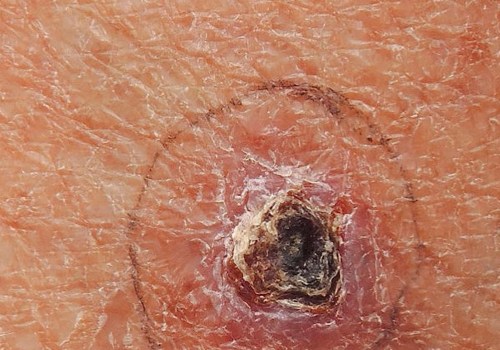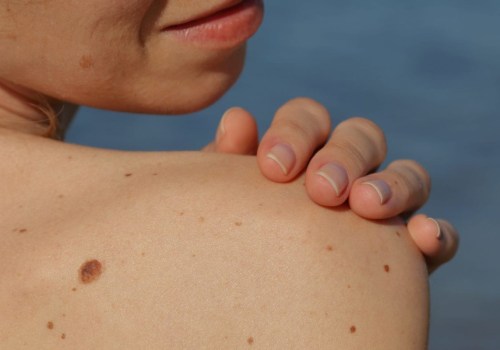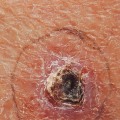Squamous cell carcinoma (SCC) is a type of skin cancer that can affect any part of the body. It is the second most common type of skin cancer, and it is caused by prolonged exposure to ultraviolet (UV) radiation from the sun or tanning beds. SCC can be life-threatening if not treated early, so it is essential to be aware of the signs and symptoms of this condition. The most common indication of SCC is a scaly, red patch on the skin that may be tender or itchy.
This patch may also have a raised border and a central area that appears to be ulcerated or crusted. Other signs include a lump or nodule on the skin that may be firm and painless, or it may be tender and painful. The lump may also have a rough surface with small indentations. In some cases, SCC can cause bleeding or oozing from the affected area.
This can occur if the tumor has grown deep into the skin or if it has spread to other parts of the body. In addition, SCC can cause changes in the appearance of a mole, such as an increase in size, irregular borders, or changes in color. If you notice any of these signs or symptoms, it is important to see your doctor right away. Your doctor will perform a physical exam and may order additional tests, such as a biopsy, to confirm the diagnosis.
Early diagnosis and treatment are essential for successful treatment of SCC. SCC is usually treated with surgery to remove the tumor. In some cases, radiation therapy or chemotherapy may also be used to treat SCC. It is important to follow your doctor's instructions for treatment and follow-up care to ensure that the cancer does not return.
How Can I Recognize Squamous Cell Carcinoma?
Squamous cell carcinoma (SCC) is a type of skin cancer that can affect any part of the body. It is important to be aware of the signs and symptoms of this condition so that you can seek medical attention as soon as possible if you suspect you may have SCC. The most common sign of SCC is a scaly, red patch on the skin that may be tender or itchy.Other signs include a lump or nodule on the skin that may be firm and painless, or it may be tender and painful.
When Should I See My Doctor?
If you notice any of these signs or symptoms, it is important to see your doctor right away. Early diagnosis and treatment are essential for successful treatment of SCC.How Is Squamous Cell Carcinoma Treated?
SCC is usually treated with surgery to remove the tumor.It is important to follow your doctor's instructions for treatment and follow-up care to ensure that the cancer does not return.









